Chesterfield County Policy 3035 restricts explicit educational materials, sparking county and statewide debate
Popular books recently affected by Policy 3035 due to explicit content.
On Jan. 1, 2023, the Chesterfield County School Board instituted Policy 3035, which limits the use of sexually explicit content in instructional materials.
According to school board member Dot Heffron, who represents the Clover Hill district, the county created and implemented the policy in response to new state guidelines.
“Policy 3035 addresses a law that was signed by Governor Youngkin last April requiring school boards in Virginia to adopt policies outlining the process for identifying and informing parents of any planned use of sexually explicit materials in the course of classroom instruction,” Heffron said. “CCPS School Board Policy 3035 very closely mirrors the Virginia Board of Education model policy, and echoes the definition of ‘sexually explicit’ as stated in existing state code.”
The county shaped Policy 3035 in accordance with state code 22.1-16.8, which was added to the code by a law passed by the Virginia General Assembly called SB 656 in April of 2022. It required the Virginia Board of Education to create a model policy and each school board to adopt a policy that followed the new guidelines contained within it. The school board reviewed a draft policy on Nov. 7 before adopting the new policy in a meeting on Dec. 13.
Policy 3035 directs all 65 schools in the county to “identify all instructional materials with sexually explicit content, ensure parental notification of any instructional materials with sexually explicit content, permit parents to review all instructional materials with sexually explicit content, and ensure alternative instructional materials, that do not include sexually explicit content, are provided in a non-punitive manner for any student whose parent so requests”. However, it does not mandate censorship or the banning of books in within county schools.
Policy 3035 plays a part in a larger national debate on the role of parents in the education of their children, and on what content children should have access to. Proponents of the measure believe that it will limit the exposure that children have to content that is not appropriate for their age. Meanwhile, the opposition believes it restricts teachers and limits students’ learning by preventing them from accessing educational materials.
Policy 3035 adds to the existing law, Policy 3031, which the county adopted in 2009. Heffron believes that 3035 clarifies and refines the previous guidelines and also maintains that Chesterfield County Public Schools has never sanctioned the use of sexually explicit materials in the classroom.
“Policy 3035 amplifies the intent of Policy 3031, a long-standing policy, which the board just reviewed and revised in 2021,” Heffron said. “There is redundancy in Policy 3035 when compared to 3031, however, Policy 3035 clearly defines ‘sexually explicit materials’ to add more objectivity and clarity in the review process of curriculum materials.”
Now that Policy 3035 is in effect, schools are taking action to follow it. According to Clover Hill administrator Eric Pioch, the school does not have the power to approve or deny instructional materials; they have to follow the policy.
“The policy defines what the content is, what allowable content is and what it is not, so we would have to take those pieces that the teacher submits and compare them to the policy and then make the determination from there,” Pioch said.
Specifically, the school has to provide parents with 30 days notice before their child’s teacher uses instructional materials with sexually explicit content. They also have to make sure that teachers provide alternative assignments for parents who do not want their children to interact with the material.
“If it meets the criteria of the content that needs 30 day notice, that’s the conversation we have with the teacher,” Pioch said. “If it doesn’t meet the policy or criteria, the teacher can go about assigning the [material with no notice or alternative assignment].”
So far, the school’s main focus is looking over book lists and curriculum for English classes to determine whether or not they fit the new guidelines.
“The English teachers [are where] most of this, if not all of it, is going to come into play,” Pioch said.
English teacher Rhonda Clopton fears that Policy 3035 will lead to teachers avoiding controversial topics.
“I think the biggest effect [Policy 3035] is going to have is that some people are not going to feel comfortable teaching certain things because of the content,” Clopton said. “Therefore, I think you are limiting choices and limiting students being able to explore things.”
She does not feel that the policy will affect her very much because she already has alternative assignments for the controversial books she teaches, but she feels that it takes autonomy away from teachers and students.
“You’re telling your teachers that they aren’t responsible enough to teach this material to your students,” Clopton said. “And I think every parent should have a choice. If you don’t want your child to read something, that’s up to you and your family, but you shouldn’t be telling an entire county of 63,000 students that they can’t do something because you’re uncomfortable with it. That’s your family and teachers respect that, but you shouldn’t take that away from everyone else.”
Heffron also has concerns about the impact of the policy.
“I fear that this policy will have a chilling effect on legitimate classroom instruction,” Heffron said. “I am concerned about the misapplication of this policy for the censoring of materials for student use outside of a course curriculum – specifically, library materials.”
In order to reduce concerns about the policy’s impact, the county deviated from state guidelines by adding the statement “this policy shall not be construed as requiring or providing for the censoring of books in the division’s elementary and secondary schools, or the designation of instructional material as sexually explicit based solely upon the sexual orientation of the characters contained therein.”
However, some students, teachers and members of the community feel that the new policy does discriminate against the LGBTQ+ community. Policy 3035 includes the word “homosexuality” within the definition of “sexual conduct” as stated in section 18.2-390 of the Code of Virginia alongside terms such as “masturbation,” “sexual intercourse” and “physical contact in an act of apparent sexual stimulation or gratification.”
Clopton feels that the policy will have a negative impact on LGBTQ+ students because of the negative connotation it places on homosexuality by including all homosexual content in the definition of sexual conduct.
“I think if a student can’t read something that somehow pertains to them, because it’s considered wrong, they themselves may internalize that so they’re gonna see themselves as wrong,” Clopton said. “So I think you’re gonna wreak havoc on the mental health of [LGBTQ+ students].”
Senior Sarah Wilms, a member of the Allies Club, feels that Policy 3035 is creating a double standard based on sexuality.
“There’s no difference in sexual content between being heterosexual or homosexual, so it doesn’t make sense to say one thing is bad or moral and one isn’t,” Wilms said.
Heffron has heard concerns about the policy’s consequences from constituents both within and outside the schools.
“I have heard that some faculty members are hesitant to sponsor LGBTQ+-inclusive clubs in response to this policy,” Heffron said. “I have heard concerns from students questioning how this policy will impact their study of art history, photography, and theater. One constituent even pointed out that our own Virginia state flag contains nudity and questioned if that is allowed under the policy.”
As CCPS moves into the future, English teacher William Kaskay fears that Policy 3035 will lead to further exclusion of marginalized groups.
“Lasting impacts of the policy are that students that fall under certain marginalized groups or titles are going to feel excluded from the classroom, and English teachers have to be more aware of and strategic about crafting their curriculum as to not face consequences,” Kaskay said. “When these policies are put into place it’s almost like there’s legal discrimination.”

Now a senior at Clover Hill, Spencer is in his third year of being a journalist and second year of being an editor for the Cavalier Chronicle. Spencer’s...
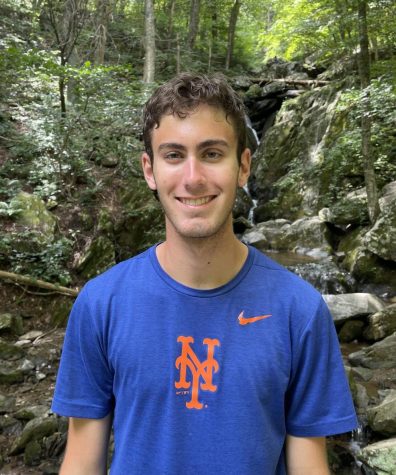
Ben is a senior in his third year of writing for the Cavalier Chronicle and his second as an editor. His love for writing led him to join the staff, and...




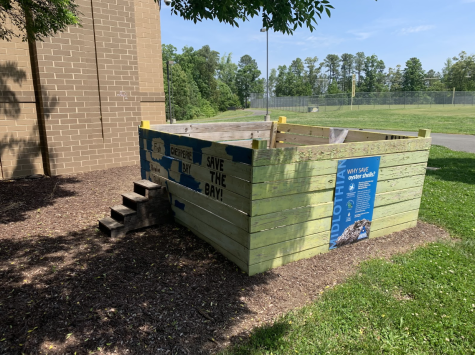
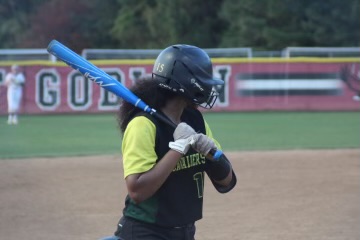
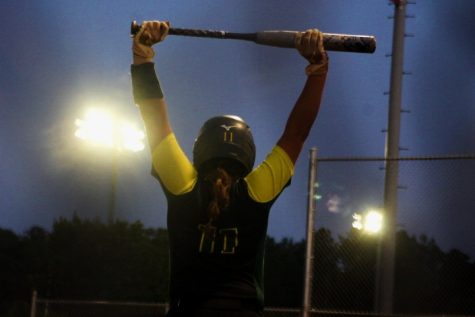

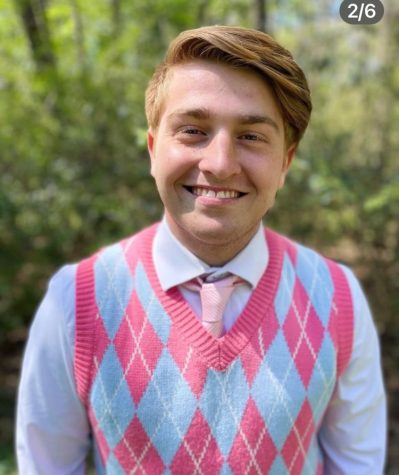


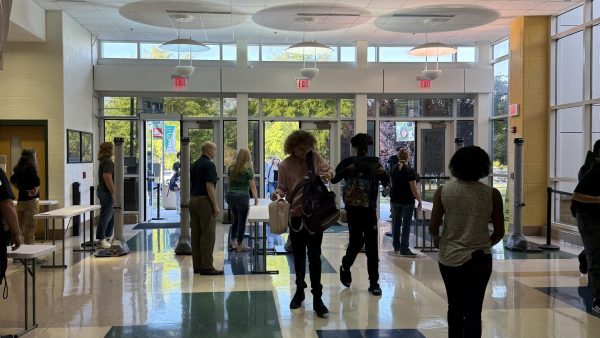
Hazel • Feb 5, 2024 at 2:52 pm
It’s scary how they keep doing this. We’re getting closer to having a complete ban on LGBTQ+ topics and it could be a disaster for some people who don’t have access to resources outside places like the school library.
mike vann • Jan 29, 2024 at 10:13 am
I had just finished reading an article on NPR and was curious about what my own community’s stance was on banned books. This article explained it well. At first i did not even notice that it was a local high school article. Good job!
Aksel • Feb 2, 2023 at 8:42 am
nooooooo ;(